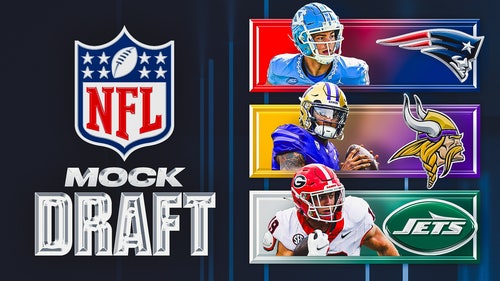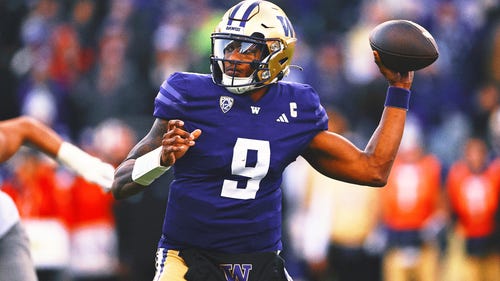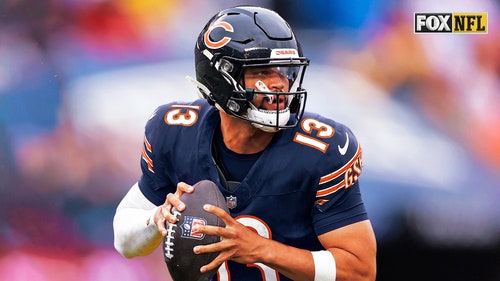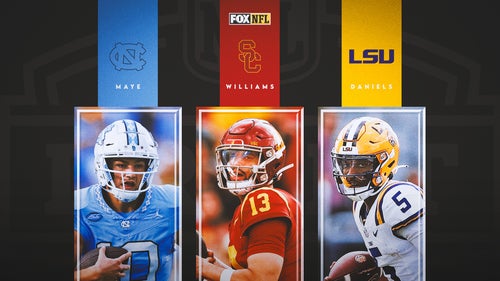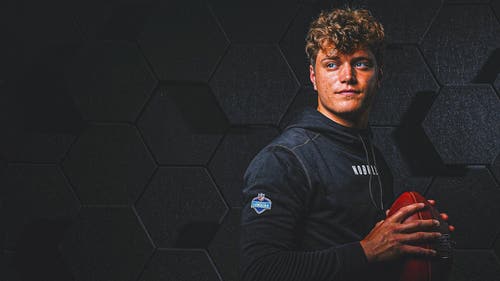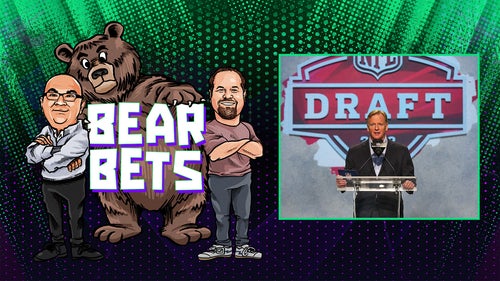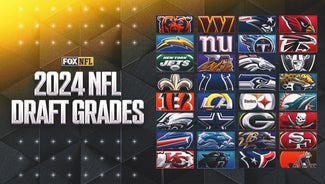
NFL wants players tested for HGH
Human growth hormone testing is coming for all NFL players if the league has its way in labor negotiations.
NFL senior vice president of law and labor policy Adolpho Birch told FOXSports.com on Thursday that the league is insistent upon HGH testing when a new collective bargaining agreement is reached with the NFL Players Association.
"We want it. We think it's necessary. We're going to ensure that it's done," said Birch, who oversees the NFL's drug-testing program. "That's something very important to us and the integrity of our game. We believe some of the basis for going slowly on it before has been addressed. At this point, it's proper for it to be an active part of our program."
Birch said the NFL had discussed the matter with NFLPA representatives before labor talks ended March 11 and a work stoppage began. An NFLPA source told FOXSports.com that an agreement for HGH testing "would have to be part of settlement discussions with the class," referring to the attorneys representing 10 NFL players in an antitrust lawsuit against the league. The NFLPA decertified as a union before the previous CBA expired in anticipation of an NFL lockout.
Testing for HGH — a performance-enhancing substance barred but not tested for in the NFL's previous drug-testing program — could become a contentious subject among NFLPA members. It also could become a bargaining chip for the NFL in CBA negotiations.
An aversion to blood testing, including the fear of needles, is one of the main reasons former NFLPA executive director Gene Upshaw resisted HGH testing for his constituents. There currently is no reliable HGH urine test although medical and scientific research is being done to create one.
Before his death in 2008, Upshaw had said, "Until a test is developed for HGH, there’s really not an awful lot to talk about. When that test is developed, we really believe it should be a urine test. No one is interested in a blood test. We've got a lot of big tough guys, but even they don’t like to be pricked on the finger to give blood.”
HGH testing at the Olympic Games began in summer 2004. But with no athletes having tested positive during Olympic competition, the program's effectiveness has come into question.
Major League Baseball implemented HGH testing in its minor leagues last July but not at the major league level. The NBA and NHL don't test for HGH.
A failed test under the NFL's performance-enhancing substance policy brings a mandatory four-game suspension.
Initially marketed for medicinal purposes like aiding children diagnosed with dwarfism, HGH began finding its way into mainstream athletics in the 1990s. Among its possible benefits are quicker recovery from injuries, increased muscle mass and loss of body fat. Potential side effects include abnormal growth of body parts like hands and feet, loss of stamina and higher likelihood for diabetes.
During a 2009 interview with Tampa radio station WQYK-AM, Tampa Bay Buccaneers running back Earnest Graham said he believed about 30 percent of all NFL players use HGH.
"I’d say a lot of NFL players are doing it," Graham said. "Any sport (where) guys come across injuries and need to get back fast and come back stronger than they were before, I wouldn’t be shocked."
The NFL formally requested the implementation of HGH testing from the NFLPA in January 2010. The NFLPA, now under the leadership of DeMaurice Smith, declined the request because it believed the issue should be part of CBA negotiations.
"The NFLPA along with the NFL has supported research to find a suitable test that will detect sustained HGH use," the NFLPA said in a February 2010 statement. "We have and will continue to work with the NFL to build a system that is fair, reliable and maintains the integrity of our game and the health and safety of our players.
"In 2007 the NFLPA agreed to strengthen its steroid policy to discipline players if they are found through sufficient credible evidence to have used, possessed or distributed performance-enhancing substances of any kind. We believe in and collectively bargained for a system that supports the testing of all banned substances. We look forward to discussing the NFL’s proposed blood-testing program in our next CBA meeting."
Disagreements over the invasive nature of Olympic-style drug testing and its effectiveness have generated controversy in other sports.
The first positive HGH test of a professional athlete came in February 2010. British rugby player Terry Newton, who admitted HGH use in his autobiography, committed suicide seven months after being suspended.
Matt Socholotiuk, a running back for the University of Waterloo in Ontario, became the first North American athlete to register a positive HGH test last September.
In professional boxing, the proposed mega-bout between Manny Pacquaio and Floyd Mayweather Jr. has been derailed over the former's failure to submit to random and strict drug-testing standards beyond what is already required by the sport's sanctioning body in Nevada. Pacquaio's trainer, Freddie Roach, has said his fighter is willing to comply with the request. But Roach also says he will respect Pacquiao's reluctance to have his blood drawn 48 hours before a proposed fight for HGH testing.
The NFL is barred from testing its players for performance-enhancing or recreational drugs during a lockout. Birch estimates that roughly 6,500 tests are randomly administered during the offseason. Birch, though, said any player who is caught using illegal drugs or arrested for such will assuredly be subject to punishment under the league's personal conduct policy once a new CBA is agreed upon.
"The laws still apply to steroids and things like that," Birch said. "Those issues will be addressed. We've been very clear about that with the commissioner's obligation and authority to handle matters dealing with these things that have an effect on the best interest of our game and conduct detrimental to our game.
"There can be no serious discussion that that type of behavior doesn't have a negative impact on our game. It's going to matter to the fans, it's going to matter to us and the commissioner is going to have to take action. He's said that and will continue to say that."
HGH testing isn't the only proposed change being made to the NFL's policies. During its last CBA offer to the NFLPA, the league agreed to a "jointly-appointed neutral arbitrator" to hear all appeals from failed tests. Some NFL players — notably Minnesota defensive tackles Pat Williams and Kevin Williams and former Denver running back Travis Henry — have filed lawsuits to protest their failed tests and subsequent suspensions.
"We've maintained that the arbitrators used and designated are independent people who express independent thoughts and are not stooges of the commissioner," Birch said. "Listen — I think there is something to be said for having people hear these cases who are intimately familiar with the business of football, the history of our game, and are steeped in the views of the integrity of our game and its importance. If it's somebody that's not, that will probably bring another set of plusses and minuses.
"We did in the (CBA) proposal agree to a system of third-party arbitrators for drug and steroid appeals. If that's something that ends up being the case, we'd be OK and go forward."






































































































































